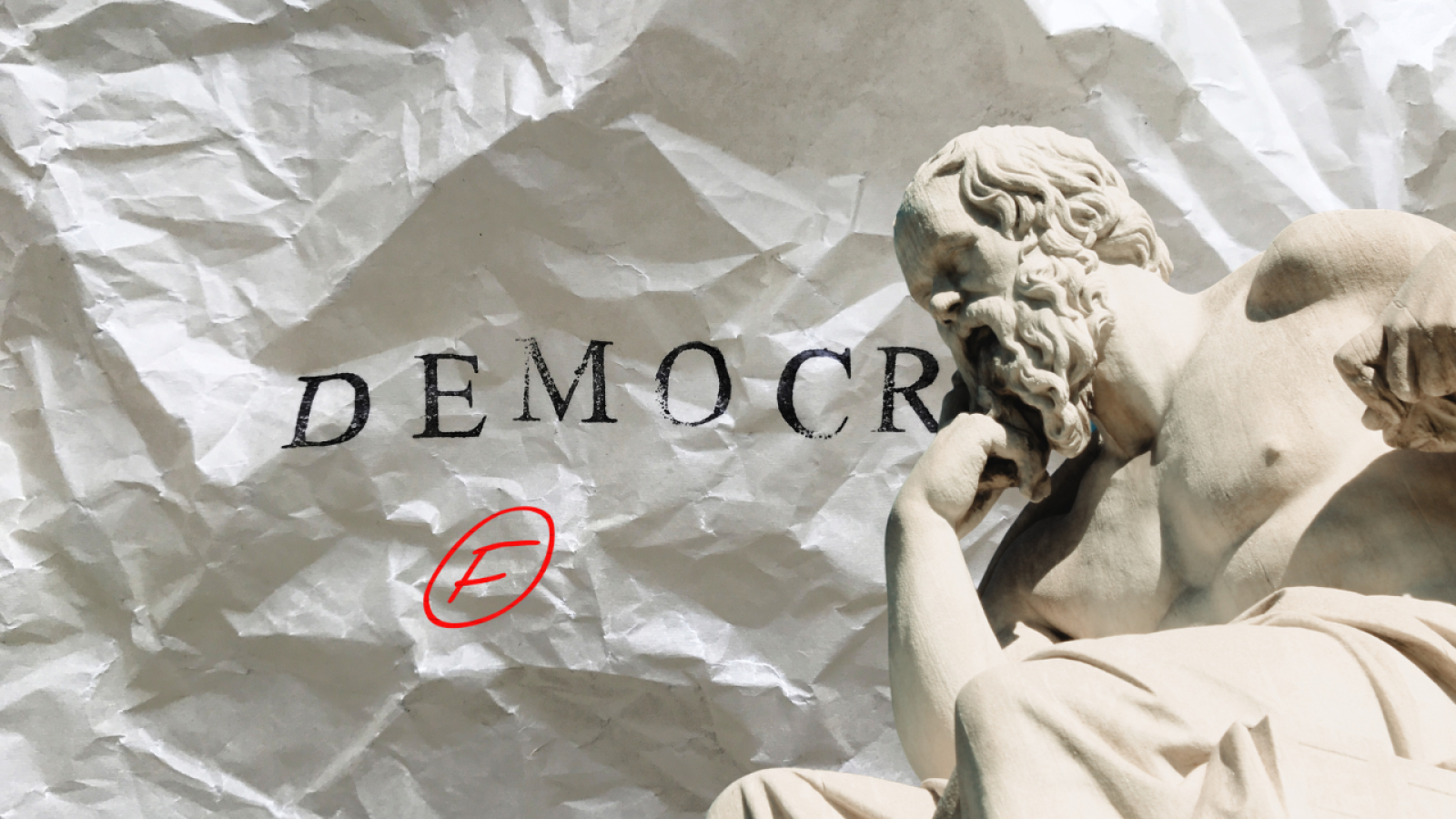
The ECGI blog is kindly supported by

When Democracy Fails: From Ancient Athens to Modern Shareholder Meetings
Picture this: It’s 500 BC in Athens. Citizens gather at the Pnyx hill for the ekklesia—among the world’s first experiments in democratic decision-making. Every free male citizen has the right to speak (isegoria), yet only the wealthy, skilled orators control the conversation. Sound familiar?
Fast-forward 2,500 years to corporate America’s annual shareholder meetings. Theoretically, every shareholder who hold shares with voting rights can vote and can participate. In reality? A handful of institutional investors and activist hedge funds dominate the discourse while everyday retail investors are left with what I call “a proxy card in a vacuum.”
The Athenian Parallel That Changes Everything
The parallels between ancient Athenian democracy and modern corporate governance are striking—and troubling. In Athens, while 40,000-60,000 men were eligible to participate in the ekklesia, only about 6,000 typically showed up. Of those, maybe a few dozen skilled rhetoricians actually spoke and shaped decisions. The rest? Passive listeners in a supposed democracy.
Corporate shareholder meetings follow the same playbook. Only shareholders with sufficient resources, knowledge, and time can meaningfully participate. The everyday shareholder—whose retirement savings might be invested in these companies—remains effectively voiceless. But it gets worse: at least Athens operated on one-person-one-vote. Corporate America embraces one-share-one-vote, creating a system that is closer to plutocracy than democracy.
The Proxy System: Democracy’s Façade
The U.S. federal proxy system, created in the 1930s to combat management manipulation, now perpetuates shareholder disenfranchisement. In 1939, Lewis Gilbert asked Bethlehem Steel to include shareholder proposals on its shareholder meeting agenda agenda—it resisted. This resistance prompted the adoption of Rule 14a-8 in 1942, allowing qualified shareholders to submit proposals. Today? You need $2,000-$25,000 in holdings with extended periods—effectively pricing out smaller investors.
Meanwhile states like Texas are making it even worse. The newly passed Texas Senate Bill 1057 requires shareholders to hold the lesser of $1 million or 3% of voting shares, maintain continuous ownership for six months, and solicit 67% of voting power so as not to rely on the corporation’s proxy materials. This is not democracy; it is aristocracy with a corporate veneer.
The Virtual Meeting Mirage
Post-COVID, virtual shareholder meetings promised to democratize corporate governance. Finally, shareholders could participate from their living rooms! Instead, we got the opposite. Miriam Schwartz-Ziv’s research found that virtual meetings were 18% shorter than in-person meetings, with 40% less time for business updates and 14% less time for Q&A.
Management controls who can speak through digital platforms. They cherry-pick questions, eliminate follow-ups, and silence dissent—all while other shareholders cannot even see what questions were asked. It is digital authoritarianism disguised as technological progress.
Remember Wilma Soss, the legendary corporate gadfly who dressed as a cleaning lady at CBS meetings to demand the company “clean up the mess”? Her theatrical confrontations led to governance improvements we now take for granted. Today’s virtual format would have silenced her completely.
The Big Three’s Quiet Revolution
Perhaps most concerning is the concentration of voting power in the hands of the “Big Three”—BlackRock, Vanguard, and State Street. These asset managers now control about 25% of votes at S&P 500 companies. They vote shares using other people’s money yet face no meaningful accountability to the actual human investors whose funds they manage.
These institutions increasingly outsource voting decisions to proxy advisory firms like ISS and Glass Lewis—entities that have no skin in the game and no shares at stake yet wield enormous influence over corporate decisions. It is governance by committee of the unaccountable.
Technology: False Promise or Real Solution?
While corporate management has used technology to further exclude shareholders, the same tools could revolutionize democratic participation. Commission-free trading apps have already diversified the investor base—with more Black/African American, Hispanic/Latino, and Asian/Pacific Islander investors, as well as more women investors.
Social media platforms enable coordination among retail investors in ways previously impossible. For example, when AMC Entertainment retail shareholders organized on Reddit to oppose additional share authorization, the company twice withdrew its proposal. The technology exists to create truly democratic corporate governance. Real-time voting, transparent Q&A systems, educational platforms—all could empower everyday shareholders. The question is not about technological capability; it is about political and corporate will.
Reclaiming the Shareholder Voice
Corporate disenfranchisement is not just a governance problem—it is a democratic crisis. When corporations dominate our economy and politics, excluding ordinary citizens from corporate decision-making undermines democracy itself.
We need a fundamental reimagining of shareholder rights: eliminating barriers to proposal submissions, mandating transparent virtual meetings, and investing in shareholder education and digital infrastructure. Most importantly, we need spaces for genuine collective decision-making.
Ancient Athenians believed democracy required active citizen participation. They were right. Corporate America's shareholders deserve better than proxy cards in a vacuum—they deserve a seat at the table.
The choice is ours: continue toward corporate oligarchy, or harness technology’s democratic potential for genuine shareholder participation. Like skilled orators controlling ancient Athens despite formal equality, today’s institutional investors and proxy advisors control corporate decisions while everyday shareholders watch from sidelines. We have the tools to fix this—if we have the will. The stakes could not be higher.
__________
Christina M. Sautter is the Associate Dean for Research and a Professor of Law at SMU Dedman School of Law.
The ECGI does not, consistent with its constitutional purpose, have a view or opinion. If you wish to respond to this article, you can submit a blog article or 'letter to the editor' by clicking here.




